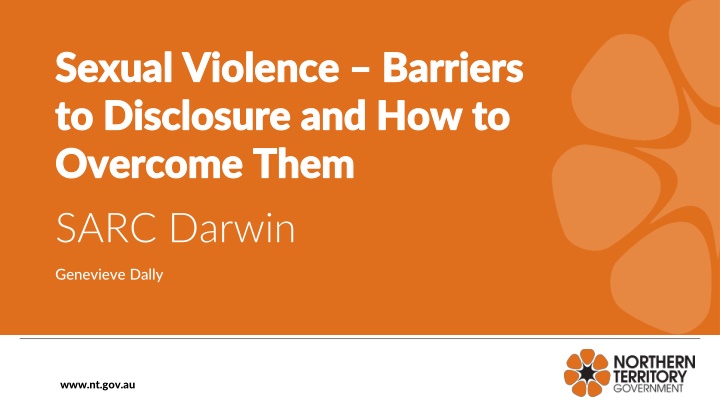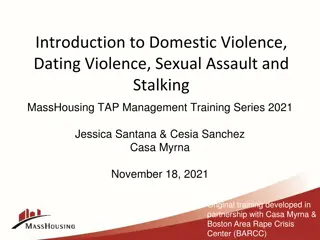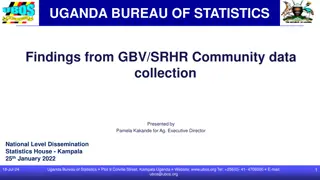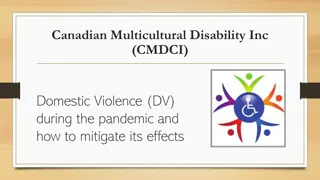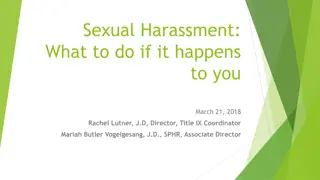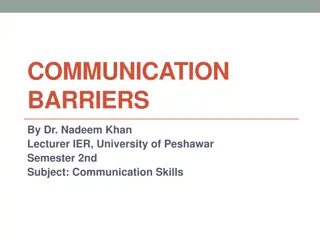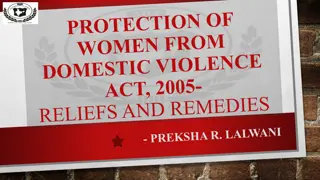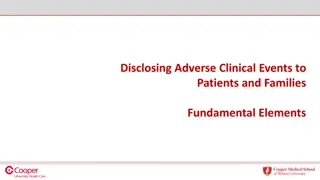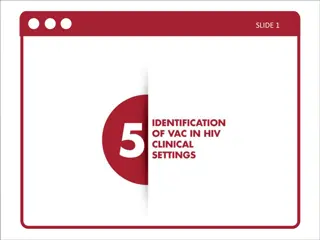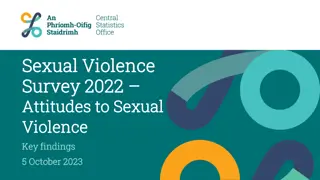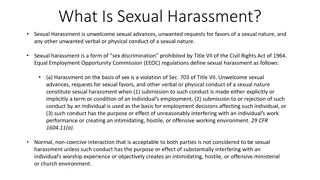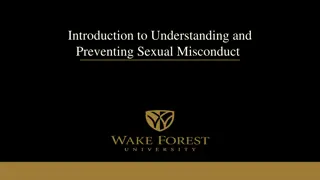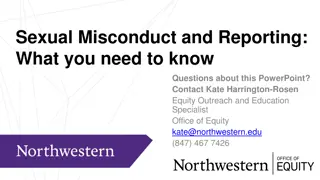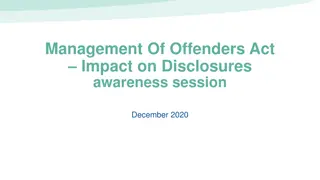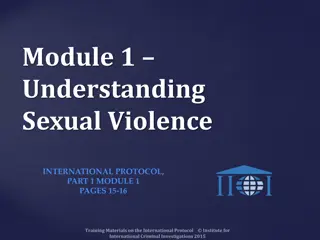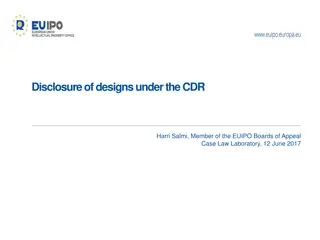Overcoming Barriers to Disclosure of Sexual Violence
Understanding the barriers to disclosing sexual violence is crucial in providing support to survivors. Common obstacles include self-blame, fear of not being believed, and concerns about judgment from others. This case study illustrates challenges faced by a woman who was sexually assaulted and highlights the importance of supportive services like crisis response, counseling, and forensic examinations in helping survivors overcome these barriers.
Download Presentation

Please find below an Image/Link to download the presentation.
The content on the website is provided AS IS for your information and personal use only. It may not be sold, licensed, or shared on other websites without obtaining consent from the author.If you encounter any issues during the download, it is possible that the publisher has removed the file from their server.
You are allowed to download the files provided on this website for personal or commercial use, subject to the condition that they are used lawfully. All files are the property of their respective owners.
The content on the website is provided AS IS for your information and personal use only. It may not be sold, licensed, or shared on other websites without obtaining consent from the author.
E N D
Presentation Transcript
Sexual Violence Sexual Violence Barriers to Disclosure and How to to Disclosure and How to Overcome Them Overcome Them SARC Darwin Barriers Genevieve Dally www.nt.gov.au
SARC Darwin 8922 6472 24/7 crisis response service for people affected by sexual assault - Counselling - Medical response - Forensic medical examinations - SAIKs - Just in Case SAIKs www.nt.gov.au
Barriers to Disclosure Self Self What are they thinking of themselves What are they thinking of themselves? ? Self blame very common Fear of being blamed by others Fear of reprisal by the perpetrator Family Family and friends and friends- - Why don t they tell Shame, embarrassment Why don t they tell? ? Did not want family or others to know Fear of not being believed Perpetrator known to friends and family Police Police- - Why not report (only 20% report Why not report (only 20% report)? )? Fear of being judged Police would not or could not do anything Did not know how to report Lack of proof Police would not think it was serious enough Fear of not being believed by the police Fear/ dislike of the police Fear of the legal system https://aifs.gov.au/publications/archived/4122 (Australian Institute of Family Studies) www.nt.gov.au
Case study 45 y old woman Susan Bower Drinking alone was followed into bathroom by unknown male who locked the door and sexually assaulted her. Bystander heard screaming and knocked on the door and woman was able to exit bathroom. Ambulance attended and SB was taken to ED. Blood alcohol to high to be able to consent to Forensic Medical Examination (FME). 20 hours following assault woman gave consent and underwent a forensic medical examination by SARC Doctor. www.nt.gov.au
Case study Cont. Following FME, sex crimes unit (SCU) attended and interview was conducted During interview woman handed a note to SCU detective indicating she had used her cousin s name and DOB during the forensic medical process SCU detectives informed SARC staff. Documentation was not amended as had been stored in tamper proof evidence bags. Relevant Hx Prior to assault and been under an Alcohol Protection order and had been breached by police Following change in legislation in Sept 2017 SB now on banned drinker register SB expressed to SCU that concerns re. further breaches were her rationale for giving a false name www.nt.gov.au
Case study Cont. Concerns by SARC staff that giving a false name could impede police investigations and outcomes Reassurance by SCU that no interest in pursing breaches esp. in instances of such serious crimes Police prepared for trial with documentation outlining previous breach Guilty plea entered early resulting in 6 year sentence www.nt.gov.au
Overcoming barriers Build relationships between services Discuss concerns with victim/survivors early Liaise with police and discuss limitations/potential outcomes Engage with SARC Just in case SAIK, Counselling www.nt.gov.au
Thank You www.nt.gov.au
